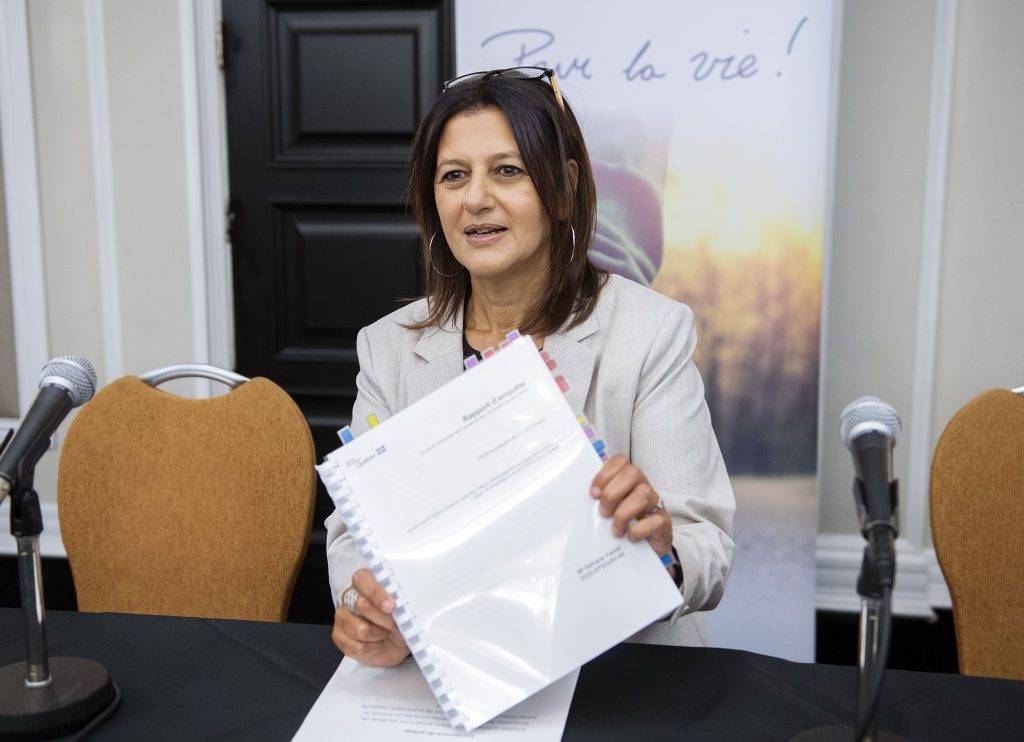Canada News
Quebec coroner says many people share blame for high death toll in COVID first wave

MONTREAL — Quebec authorities share blame with the owners of a private Montreal-area long-term care home where 47 residents died during the early days of the COVID-19 pandemic, the province’s coroner said Thursday.
The owners of the home, the Quebec government and a Montreal health authority “passed the ball around” while vulnerable people died alone, coroner Géhane Kamel told reporters.
“There were a lot of emails that were sent, but during that time, people died,” Kamel said. “There were people who were dehydrated; there were people who were in their excrement and no one came …. Everyone failed.”
Thursday’s news conference was the first time Kamel spoke publicly since she released her report on Monday regarding her investigation into 53 deaths at several long-term care homes during the pandemic’s first wave.
She said that on March 29, 2020, officials at the local health authority were sending lawyer’s letters to the owners of the Herron care home, writing to the Health Department and deciding whether to call the police.
“While all this was happening, people were dying,” she said.
In August 2021, Quebec’s Crown prosecutor’s office says the Herron’s owners wouldn’t face criminal charges. The office said that after an “exhaustive” investigation, the evidence did not meet the high bar for criminal charges, adding the decision not to lay charges did not minimize the “tragic events” that took place at the home, nor did it rule out that civil or ethical violations could have been committed.
Kamel said one death in particular at the Herron still haunts her — that of Leon Barrette, who died March 29, 2020, two days after he had been transferred to the facility. His body was cold when it was found, according to her report. He had died alone, apparently forgotten in his room.
“Did we leave the people to die without care?” she said.
While Kamel said her mandate wasn’t to blame specific people, her report was highly critical of Lynne McVey, the CEO of the health authority. Kamel refused to comment on an announcement that McVey would step down at the end of her mandate in July.
The coroner thanked Seniors Minister Marguerite Blais for her honesty at the inquest. Kamel said Blais’s testimony made it clear how little was done to protect older people living in long-term care.
Kamel’s report said that residents of Quebec long-term care homes were kept in a blind spot while the provincial government focused on protecting hospitals as it prepared for the first wave of the novel coronavirus in the spring of 2020. Almost 4,000 long-term care residents died between March and June of that year.
Her report included 23 recommendations intended to prevent future deaths. “Ultimately, what I hope we remember is that this report is supposed to be used so that this never happens again,” she said.
Patrick Martin-Ménard, a lawyer who represented some of the families of people whose deaths were investigated by Kamel, said her report is a good first step but that a full public inquiry is needed.
“We know that there were a number of shortcomings by a number of people in decision-making positions, from the top to the bottom of the health-care system, that led to significant casualties during the pandemic,” he said in an interview Thursday. “It’s not so much about pointing the finger, it’s about learning the lessons of what went wrong.”
Martin-Ménard said long-term care facilities are still seen as a place where elderly people are sent to die and that “sustainable” change is needed.
“There was an issue with the culture, the approach with which we take care of our most vulnerable elderly people, and this approach, unfortunately, has not changed; we’re seeing the same mentality prevail today,” he said.
This report by The Canadian Press was first published May 19, 2022.
Jacob Serebrin, The Canadian Press





















